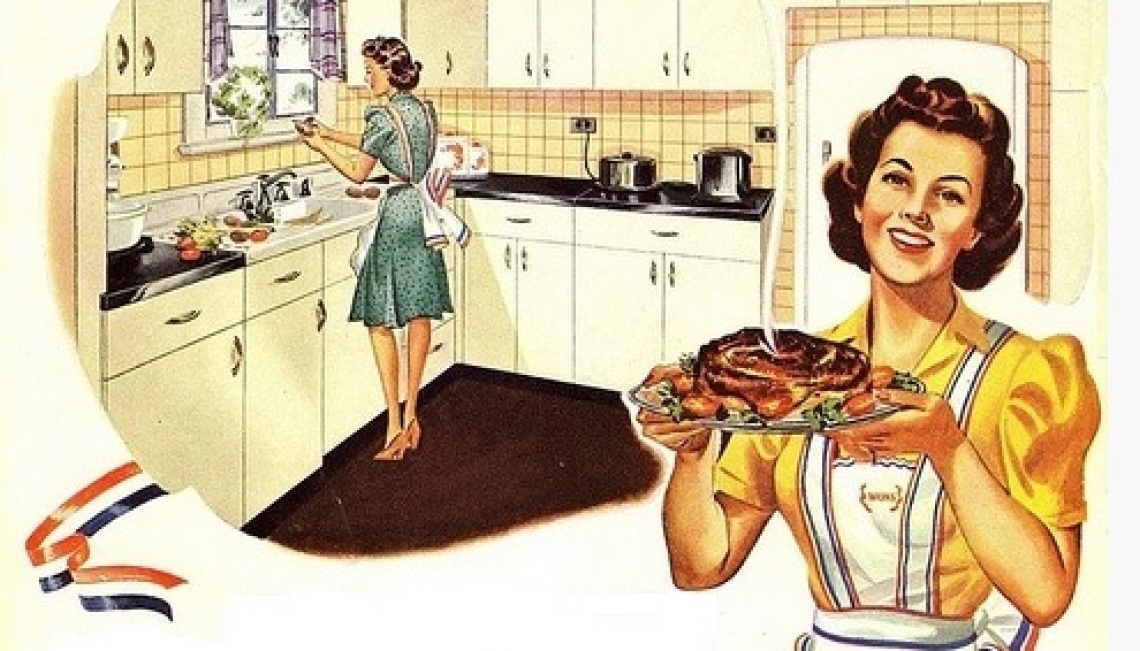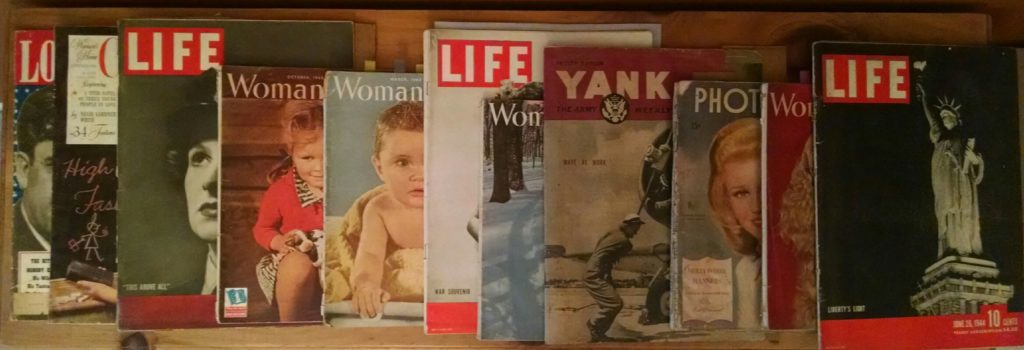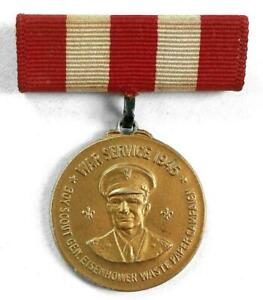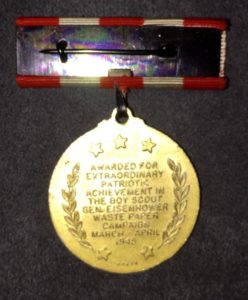Aside from talking to the people who lived on the home front or those who have stories from their parents, magazines and newspapers are my next best source of boots-on-the-ground information but it’s not especially easy to find these gold nuggets.
President Franklin D. Roosevelt formed the War Production Board (WPB) in early 1942 to “oversee the conversion of industries from peacetime work to war needs, allocate scarce materials, establish priorities in the distribution of materials and services, and prohibit nonessential production”. The WPB quickly launched nationwide scrap drives that were enthusiastically supported by civilians longing to help in any way to win the war and bring their loved ones home. Campaigns were organized on a city level to collect metal, rubber, kitchen fat, newspapers, rags, and so on.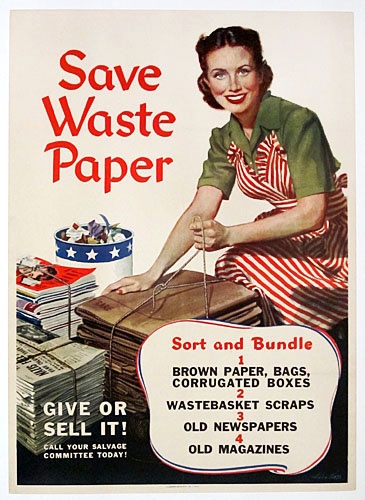
The War Production Board smartly rolled out the Paper Troopers program, designed to sound like “paratroopers,” to involve schoolchildren in the effort. Troopers were awarded arm patches and certificates for collecting certain amounts.
And then they got called in the Boy Scouts of America.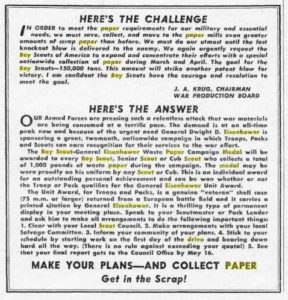 “In order to meet the paper requirements for our military and essential needs, we must save, collect, and move to the paper mills even greater amounts of scrap paper than before. We must do our utmost until the last knockout blow is delivered to the enemy. We again urgently request the Boy Scouts of America to expand and concentrate their efforts with a special nationwide collection of paper during March and April. The goal for the Boy Scouts – 150,000 tons. This amount will strike another potent blow for victory. I am confident the Boy Scouts have the courage and resolution to meet the goal.” – J.A. Krug, Chairman War Production Board.
“In order to meet the paper requirements for our military and essential needs, we must save, collect, and move to the paper mills even greater amounts of scrap paper than before. We must do our utmost until the last knockout blow is delivered to the enemy. We again urgently request the Boy Scouts of America to expand and concentrate their efforts with a special nationwide collection of paper during March and April. The goal for the Boy Scouts – 150,000 tons. This amount will strike another potent blow for victory. I am confident the Boy Scouts have the courage and resolution to meet the goal.” – J.A. Krug, Chairman War Production Board.
The little armies of boys went in for all — a campaign medal was on the line. By final count, 1,500,000 scouts and cubs were cited for “astronomical success” — too successful when it came to my beloved newspapers and magazines. The WPB had to call a stop to the paper drives. They had no where to store 300 million pounds of paper!
And paper was only recycled as packing material.
“Awarded for extraordinary patriotic achievement in the Boy Scout General Eisenhower Waste Paper Campaign March – April 1945.”
The medal was awarded to individual scouts who collected over 1,000 pounds of waste paper. Imagine the competition in one small town where several scouts were vetting for your waste paper, hoping to make the 1,000 pound mark somehow!
So, you can see what I’m up against in my search for WWII era reading sources, unused cookbook pamphlets, letters, postcards, etc. When faced with the message that paper could bring your son home sooner, and when the army of one and a half million patriotic little boys pulling little red wagons shows up at your front door, it’s a wonder that any sheet of paper remains!
